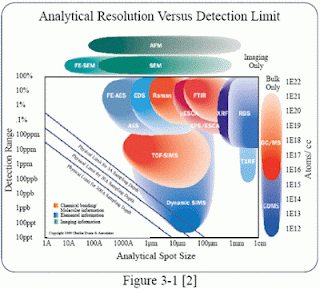" The failure of the company atau the company’s failure "
Untuk menunjukan bahwa seseorang memiliki sesuatu, kita bisa menambahkan ‘s (apostrophe s) pada kata benda.
Contoh:
This is Ari’s house (rumahnya Ari).
Retno’s father (ayah Retno).
She is Mr. Smith’s wife (istrinya Pak Smith).
Tommy is Anita’s husband (Suaminya Anita).
The student’s book (buku siswa) is blue.
Where were you last Sunday? At Lucia’s (di rumah Lucia) in Yogyakarta.
Miranda’s voice is more beautiful than Maria’s (suara Maria).
My cow’s body (tubuh sapiku) is bigger and bigger.
Contoh:
Whose car is it? Hardy’s (Mobilnya Hardy)
That is Nugi’s (miliknya Nugi)
My hair is longer than Ann’s (rambutnya Ann)
Contoh:
The town’s people (orang-orang kota)
The world’s population (penduduk dunia)
The city’s theatre (teater kota)
Contoh:
Wardah and Kholid’s wedding (pernikahan Wardah dan Kholid)
Mr. and Mrs. Shinta’s house (rumah Tuan dan Nyonya Shinta)
Contoh:
Today’s meeting will be attended by Mr. President.
Read yesterday’s newspaper, please.
Contoh:
My friends’ cars (mobil teman-temanku) are made in Japan
Mr. Richard and Mrs. Grace are my teachers’ names (nama-nama guruku).
The students’ motorcycles (sepeda motor murid-murid) are black and blue.
Contoh:
The door of the house.
The beginning of the film.
The title of the film.
The capital of Australia.
The bank of Switzerland.
The back of the car.
Contoh:
The failure of the company atau the company’s failure.
The problems of the government atau the government’s problem.
The success of the company atau the company’s success
 |
| http://www.empf.org/empfasis/archive/104component.htm |
▲ 2. Introgative Pronouns (Kata Ganti Tanya), misalnya:
· Who (siapa/siapa yang) untuk orang, misal:
Who (siapa) is it? It’s me (Ini aku)
Who (siapa yang) invented telephone? Graham Bell
· What (Apa/Apa yang/Berapa)
What (apa yang) do you want? Money and Food.
What bus (Bis apa) do you want? Transjakarta
What (berapa) is the price of this handphone? US$ 100.
· Which (yang mana) untuk benda, misal:
Which one (yang mana) is your sister? The one with a T-Shirt.
Which bus (Bis yang mana) goes to Bali? LORENA
▲ 3. Relative Pronouns (Kata Ganti Penghubung), misalnya:
· That (yang) untuk orang atau benda, misal:
Valentino Rossi is the best world best raccer that (yang) has ever visited Malaysia.
Everything that (yang) happened here was my responsibility.
· Who (yang) untuk orang, misal:
The man who (yang) is speaking is a bank manager.
A pilot is a person who (yang) flies an airplane.
The woman who (yang) sits next to me comes from Texas, USA.
· Whom (yang) untuk orang sebagai obyek, misal:
The girl whom (yang) I met yesterday had left for Europe.
The man whom (yang) the car belongs to is a businessman.
· Whose (yang…nya) untuk orang, misal:
A widow is a woman whose husband (yang suaminya) is dead.
The man whose (yang) house is very luxurious works for a foreign private company.
· Which (yang) untuk benda misal:
This is the film which /that (yang) tells us about the Vietnam War.
The car which (yang) he broke last night is being repaired by a mechanic.
▲ 4. Demonstrative Pronouns (Kata Ganti Penunjuk), misalnya:
This – These
· This (ini) untuk benda tunggal yang dekat dengan kita, misal:
This is (ini) a new handphone.
This is a nice bag.
This album (album ini) is good.
· These (ini) untuk benda jamak yang dekat dengan kita, misal:
These are (ini) new handphone.
These are (ini) nice bags.
These albums (Album-album ini) are good.
That – Those
· That (itu) untuk benda tunggal yang jauh dengan kita, misal:
That is (itu) an old program.
That is (itu) my answer.
That problem (Problem itu) is very serious.
· Those (itu) unruk benda jamak yang jauh dengan kita, misal:
Those are (itu) old programs.
Those are (itu) may answers.
Those problems (Problema-problema itu) are good.
▲ 5. Reflexive Pronouns (Kata Ganti Reflektif), misalnya:
Reflexive Pronouns
· I do it myself (saya sendiri)
· You will hurt yourself (kamu sendiri)
· He bought himself (dia sendiri) a car.
· She hurts herself (dia sendiri)
· The cat is washing itself (ia sendiri)
· We build a house ourselves (kami sendiri)
· They are pleased with themselves (mereka sendiri)
▲ 6. Indefinite Pronouns (Kata Ganti Tak Tentu).
Kata ganti yang selalu dianggap tunggal (singular) dan diikuti oleh kata kerja tunggal (singular verbs) pula.
· Anybody (seseorang) - Is there anybody inside?
· Anything (sesuatu) - She didn’t say anything.
- Anything is better.
· Anyone (seseorang) - Anyone is welcome here.
· Everybody (setiap orang) - Everybody says. “NO”
· Everything (segalanya) - Everything is OK.
· Everyone (seseorang) - Everyone has the right to vote.
· Somebody (seseorang) - Somebody was here an hour ago.
· Something (sesuatu) - I have something to talk about.
- There is something to eat in my bag.
· Someone (seseorang) - Someone wants to see you.
· Nobody (tak seorang pun) - Nobody is perfect.
· None (tak seorang pun) - None hates her.
· Nothing (tak sesuatu pun) - Thet criminal says nothing.
2. Adjectives
Adjectives (adj.) atau kata sifat adalah kata-kata yang digunakan untuk menerangkan orang, tempat, dan benda, misalnya:
- beautiful, ugly, handsome, good, interesting, important, expensive;
- black, white, yellow, green, blue, grey, purple, brown, pink;
- friendly, satisfied, busy, embarrassed, lucky, necessary;
- Etc.
Contoh:
Luciana is a beautiful and friendly girl.
This is a difficult question.
Sumber : TOEFL penulis _ Smtr III
Sumber : TOEFL penulis _ Smtr III
Tidak ada komentar:
Posting Komentar